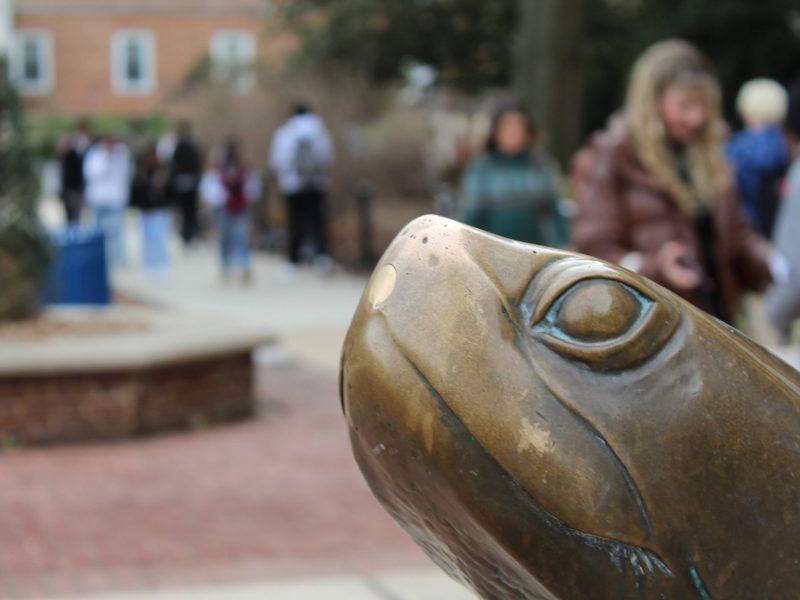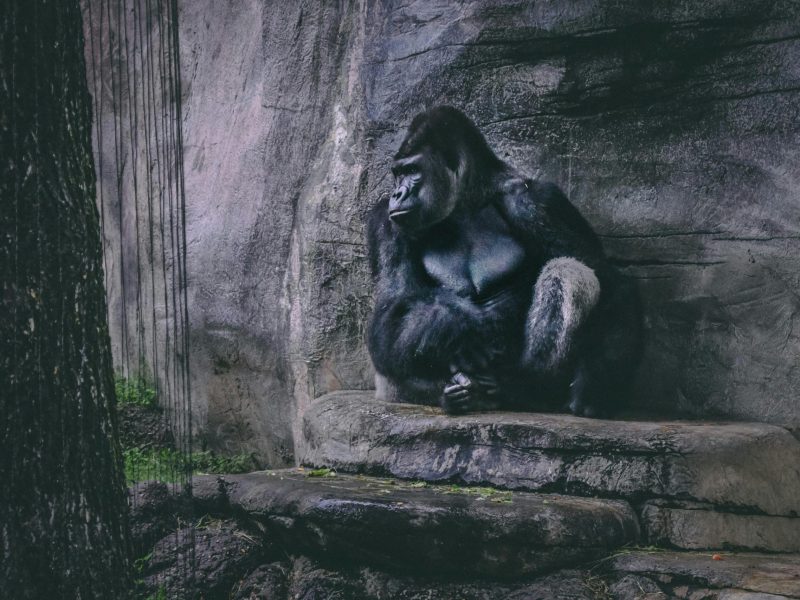The baseline of Victoria Monét’s “On My Mama” starts to play as I finish this piece. Although it’s one of my favorite tracks from this year, I didn’t listen to it as much as I did in the weeks before Spotify ceased its listener tracking for its annual Wrapped.
Spotify Wrapped, which dropped Wednesday, is the accumulation of a user’s entire year of music consumption packaged into a vibrant slideshow. Every moment spent nursing a breakup with cheesy ballads or reconnecting with a middle school guilty pleasure is recorded, immortalized and dolled-up in colorful data graphics for posting.
Yet it’s hard to miss the underlying expectations that come with sharing your Wrapped on social media. In the spirit of America Ferrera’s Barbie monologue, your music taste needs to be niche, but not too niche that you’re pretentious. You need to be mainstream, but not so mainstream that you’re basic.
For sophomore computer science major Jessica Hoang, posting her yearly Wrapped on Instagram comes with restraints.
“I like to show the bits and pieces,” Hoang said. “If I feel embarrassed that there’s this particular song, then no, I’m not going to share it because I don’t want people to see that.”
Like myself, Hoang said she filters out supposedly “uncool” songs and artists from her Wrapped before posting, but doesn’t want to be left out of the online frenzy.
“You want to look cool,” she said. “No one’s gonna think that if you have the Glee Cast as your number one artist.”
[Offbeat: UMD Native and Indigenous alumni teach staff and students how to Powwow]
This desire to “look cool” infected my music listening experience. “On My Mama” became part of a longer playlist I made two months ago titled, in all caps, “YOU WILL NOT WIN PETER!” “Peter” being a reference to Fall Out Boy’s bassist, Pete Wentz.
It’s a playlist of my favorite female artists that I never consciously listened to. Rather, it loops mindlessly on my computer to cleanse my Spotify listening data from my “summer of emo.”
For years, my peers told me I fell into a category of “basic” music taste, and I believed that Fall Out Boy, arguably the most mainstream of pop punk bands on my Wrapped, would worsen that perception of myself.
While not working to cleanse an artist from his data, junior government and politics and philosophy major Anderson Lemus-Del Cid said he and his friends would listen to a specific artist on repeat to make sure they appeared in their data.
“People definitely listen to [music] in an inauthentic way, but the point would be what type of inauthentic person they want to be,” he said.
Even when joking about the concerning amount of times he listened to “Bags” by Clairo which, in his words, “fucking smacks,” Lemus-Del Cid admitted the song’s presence is likely the most authentic part of his Wrapped.
Of course, no one is forcing us to post our data or warp our personas for social media, but in the age where living is content and everything must be categorized, it’s difficult not to. Our identities are reduced to aesthetics. To be this “cool girl” and live in a world where I’m perceived as such, authenticity, down to my personal engagement of art, must be curated.
“You don’t want to be like every other person, you want to have some originality to you,” Hoang said. “It’s so spoken down on to have certain songs that you like — like mainstream music.”
Passive listening became my habit, and my streaming grew from a reflection of my tastes to a desire to fit in. But this obsessiveness of turning art into media content undeniably killed my enjoyment.
[UMD alum shines in cinematographer role, yet low budget bogs down film’s style]
I can’t appreciate Fall Out Boy without worrying about how it’ll affect my data. I can’t enjoy Victoria Monét without repeating her song to death for the algorithm. All for a single post once a year.
“I think people get uncomfortable with the fact that they could potentially get judged for something that they purely just want to enjoy for themselves,” junior government and politics major Sophia Bass said. “It becomes commodified in a way.”
Bass believes that as fun as the memes are — trust me, I loved getting to know what city everyone’s music taste is from — people lose the original purpose of Wrapped to compete with others.
“When people truly, in real life get judged for their music taste, I feel like we’re commodifying what music actually is because music is art,” she said. “The purpose is to look back … It’s seeing the artists I’ve discovered and how these songs reflected moments of my life.”
And eventually, I agreed. My lived experience indicates my music taste, not the other way around. I found myself this year within the lyrics of Fall Out Boy’s album Infinity on High and belted my heart out at their show in July.
The question of authenticity was answered in those moments. As I let go for a bit of the perception of my outer self, I found joy in art again. When Wrapped finally dropped and Peter won over my streaming data, I posted proudly.



